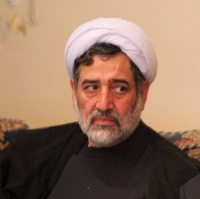The Doubtful Position of the Arabs toward Syria

IRD: How do you assess the position taken by the Arabs in regards to Syria?
MSD: We hear paradoxical positions taken within the Arab League in regards to Syria. In contrast to the issue of Libya, in which Persian Gulf countries took a firm position, most countries-- like Egypt and Tunisia-- with the exception of Syria, confirm this position. If we recall, Syria did not condemn the death of civilians in Libya and refrained from supporting Libyan civilians.
Moreover, countries like Lebanon do not want to take any position against Syria. Other Arab countries like Iraq and Jordan are also worried about their borders in regards to Syria. Persian Gulf countries, which have had relatively good relations with Syria, have not taken any position against the officials of this country. But recently, there has been some correspondence with Saudi Arabia in regards to using its influence in Syria; especially now that with the influence of Syria the Lebanese government was formed.
IRD: Does the position of the Arab League Secretary General in regards to Syria suggest the position of all member states?
MSD: The position of the Arab League Secretary General, Amr Moussa, whose presidency is not over yet, has been the center of attention. Amr Moussa has announced that the situation in Syria is dangerous and therefore negative propaganda against him is being propagated in Syria. Amr Moussa has responded to Syria and said that his comments did reflect his own personal position, but the situation in Syria is very critical. Therefore, even though it is said that the Arab League is trying to deprive Syria of membership because of Moussa’s presidency, there are many ambiguities in the position taken by them.
IRD: It seems that Egypt has taken a position in regards to Syria based on its own experience?
MSD: Yes, the Foreign Minister of the transition government in Egypt, who is a well-known individual, has announced that the crackdown on the people cannot continue in Syria, and a solution has to be proposed. He has also added that they should remind the Syrian government that its reputation has been stained.
IRD: How do you assess the future of Syria- Turkey relations now that Turkey is providing the Syrian opposition with shelter despite the close relations between Erdogan and Bashar Asad?
MSD: The entrance of refugees into Turkey has created some problems as well. The UN, which had no access to the borders of Syria, has sent some rapporteurs among the refugees to investigate the humanitarian situation in Syria. Despite this solution, these rapporteurs might still face problems with the Syrian government.
It has been announced that Bashar Asad’s special advisor has gone to Turkey and had many negotiations with Erdogan. The Turkish government tried to prevent the leak of any information from these negotiations to the media. It is said that Turkey proposed practical approaches in order to save the Syrian system with some reforms; one of the conditions was to control Maher Asad (Bashar’s brother) as the general of the Syrian Special Forces.
Despite the fact that Bashar Asad congratulated Erdogan on his victory, the two sides have many difficulties that may create tensions in the relations between the two countries.

